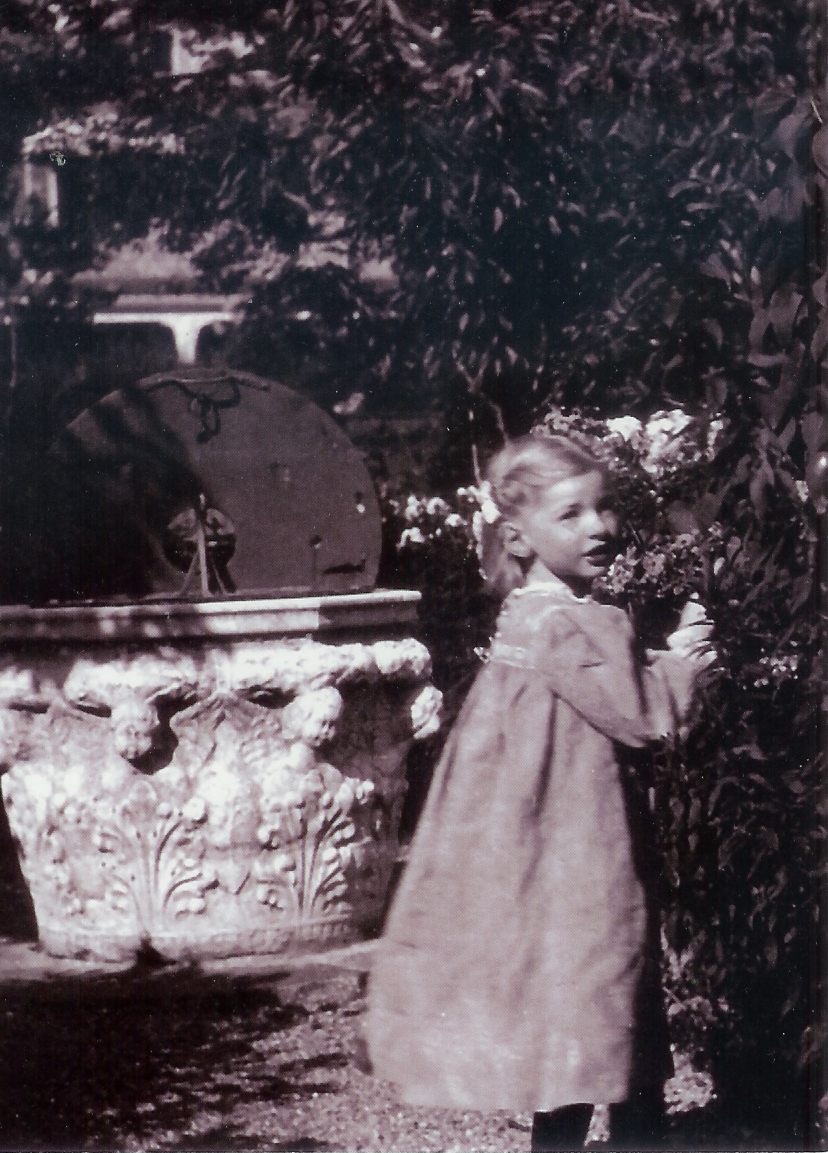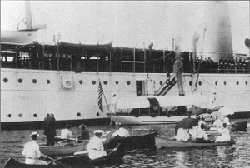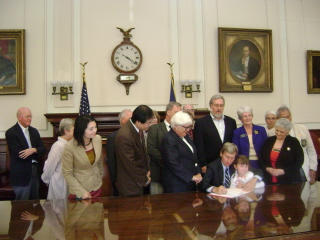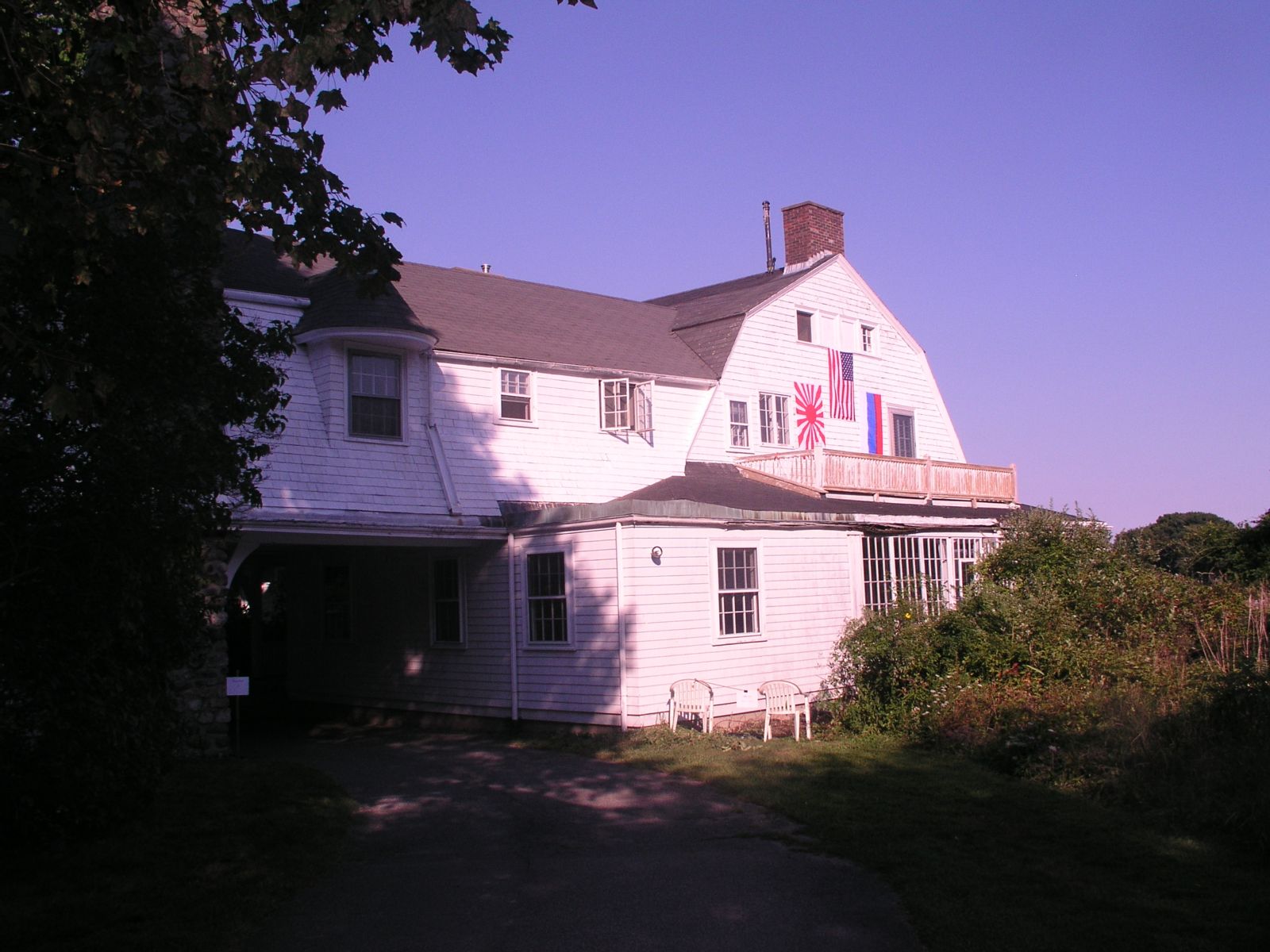The Carey Family as Citizen Diplomats in 1905
Newspaper accounts of the peace conference proceedings include multiple efforts by local residents to engage the diplomats in social gatherings designed to put them at ease. This approach to mediation is now known as multi-track diplomacy.
Among the citizens so engaged were Arthur Astor Carey and his wife, Agnes. In particular, the Portsmouth Herald reported that Agnes Carey assisted Mrs. Herbert Pierce (Helen Pierce, who had grown up in Portsmouth) with official entertaining by her husband Third Assistant Secretary of State, Herbert H.H. Pierce, President Roosevelt’s representative on site.
After assisting Mrs. Pierce, Mrs. Carey took up the cause of providing hospitality by inviting the Russian and Japanese delegations to her home for dinners and garden parties. One garden party in particular took place on Sunday, August 27th, at the height of tensions over the final terms of the negotiations.
 The delegations arrived and departed separately and the Careys young daughter Alida (left) remembered, decades later in an oral history interview, that the garden was decorated with a large Russian flag and a large paper Japanese carp hung so that they could be seen from the Wentworth across Little Harbor.
The delegations arrived and departed separately and the Careys young daughter Alida (left) remembered, decades later in an oral history interview, that the garden was decorated with a large Russian flag and a large paper Japanese carp hung so that they could be seen from the Wentworth across Little Harbor.
Alida Carey remembered other dinners where the Russians were quite noisy guests while the “victorious Japanese” who had won all the battles in the War, were more reserved.
That these social events, this citizen diplomacy provided by the summer residents of Little Harbor was considered valuable at the highest level of the negotiations is evidenced by another details Alida Carey recalled. After the Treaty was signed and the diplomats departed, Roosevelt arranged that his Presidential yacht, the Mayflower (below) provide a private harbor cruise for the family.

While the hospitality of the Careys was matched by other prominent citizens, church congregations, onlookers at Wentworth By the Sea Hotel and ordinary residents who filled the sidewalks to welcome the delegates in a Welcoming Parade, only the Careys are known to have received an official Presidential acknowledgement of their efforts. And only the Carey Cottage at Creek Farm remains of the private homes where the Russian and Japanese delegates who ended “World War Zero” walked.
Statewide designation of Portsmouth Peace Treaty Day made this citizen diplomacy central to the state's definition of itself.
New Hampshire Statute Recognizes Importance of the Treaty and Citizen Diplomacy
In 2010, The New Hampshire House and the New Hampshire Senate voted unanimously to pass SB379, “An Act proclaiming September 5 as Portsmouth Peace Treaty Day” and Governor John Lynch signed the bill on August 17, 2010.
Proposed by Portsmouth Peace Treaty Forum chairman Charles B. Doleac and introduced by NH Senator Martha Fuller Clark, the bill was cosponsored by State Representative Robin Read, NH Senator Maggie Hassan (Exeter), Rep. Jacqueline Cali-Pitts (Portsmouth), Rep. David Watters (Durham), Rep. Laura Pantelakos (Portsmouth), Rep. Jim Splaine (Portsmouth) and Senators Robert Odell (Lempster) and Jack Barnes, Jr. (Raymond). The bill as introduced intended to recognize The Portsmouth Peace Treaty as “a permanent and important chapter in New Hampshire history that should be recognized and appropriately commemorated for generations to come.”
The bill amended RSA4:13 “the Powers of Governor and Council: Observances Proclaimed by Governor” by adding the following new paragraph:
Portsmouth Peace Treaty Day. The governor shall annually issue a proclamation calling for the proper observance of September 5 as Portsmouth Peace Treaty Day and shall call on the citizens of New Hampshire to observe the day with appropriate ceremonies and activities commemorating this important day in New Hampshire history.
As presented to House and Senate committees of the New Hampshire Legislature the bill explained that legislation creating Portsmouth Peace Treaty Day commemorates New Hampshire’s role as the host President Theodore Roosevelt designated for the peace conference that ended the Russo-Japanese War, and recognizes the part played by New Hampshire citizens in the multi-track diplomacy of the successful international negotiations between the Japanese and Russian diplomats in Portsmouth that resulted in the Portsmouth Peace Treaty on September 5, 1905.
1. Russo-Japanese War ends at Portsmouth: On September 5, 1905 the signing of the Portsmouth Peace Treaty at the Portsmouth Naval Shipyard ended the war fought between Russia and Japan over control of Korea and Manchuria. The Russo-Japanese War is now known as “World War Zero” for the modern weapons employed, huge armies and navies engaged its destabilizing effect on both the worldwide balance of power and the European colonial empires.
2 Roosevelt’s Choice of New Hampshire: In 1905 President Theodore Roosevelt convinced the Russians and Japanese to enter into direct negotiations to end the war, meeting in the United States; and chose Portsmouth, New Hampshire as the negotiating site, with its secure U.S. Naval Shipyard, eager state and local government officials and welcoming community. Roosevelt never came to Portsmouth, but used back-channel diplomacy with Japan, Russia and European powers to influence the negotiations while relying upon the US Assistant Secretary of State, the US Navy and the government and citizens of New Hampshire to facilitate the formal and informal negotiations between the Japanese and Russian diplomats in and around Portsmouth that lasted nearly 30 days.
3. New Hampshire’s Citizen Diplomacy: Citizen diplomacy – the effect of the New Hampshire hosts on the diplomats -- significantly contributed to the successful negotiations that resulted in the Portsmouth Peace Treaty that earned President Roosevelt the 1906 Nobel Peace Prize. This unique example of multi-track citizen diplomacy shows that ordinary people can make a difference in international affairs.
Many elected and community officials spoke in favor of the bill at the Senate and House committee hearings, including the bill sponsors Senator Clark and Representative Read, Senator Barnes and Representative Cali-Pitts, the Secretary of State, Portsmouth Mayor Tom Ferrini, Charles Doleac (Japan America Society of NH president), Judge Sawako Gardner and Stephanie Seacord of the Japan-America Society of NH, Steve Upton of the Russia Society of NH Board and Don Alusic, an independent producer of a documentary about the Portsmouth Peace Treaty. Also advocating for passage of the bill were Secretary of State Bill Gardner and Portsmouth Mayor Ferrini who prepared a letter of support that was presented to the House Committee by Assistant Mayor Nancy Clayburgh.
The bill passed both House and Senate, unanimously and is now recorded as RSA 4:13-o Portsmouth Peace Treaty Day.
Each year on September 5th at 3:47 pm – the exact moment the Treaty was signed -- Portsmouth commemorates its history by recreating what happened in 1905. The Shipyard conducts a memorial service that includes the firing of their guns which is a signal to blow the Shipyard whistle. In response, the bells of Portsmouth ring for ten minutes. In 1905 they rang for an hour in celebration. People in Market Square can hear church bells all over the city and other seacoast churches and the Portsmouth Public Schools participate in the bell-ringing as well. Each year, starting in 2010, the Governor of New Hampshire has issued a proclamation declaring Portsmouth Peace Treaty Day throughout the State.
The governments of Japan and Russia have demonstrated that they consider this chapter in their histories significant; with emissaries from Tokyo and Moscow as well as their Consuls General In New York and Boston taking an active interest in Treaty commemorations. In 2005, Japan sent its Ambassador to the US as it representative to the 100th Anniversary celebration. In 2015, the director of the Foreign Ministry Archives of the Russian Federation participated in 110th Anniversary commemorations. The Japanese Foreign Ministry has also awarded two meritorious service commendations to the Japan-America Society of New Hampshire for efforts to protect and preserve the history of the Portsmouth Peace Treaty; and awarded the Order of the Rising Sun, Gold Rays with Rosette to Charles Doleac for that work.

At the bill signing, Rep. Valerie Hardy brought her granddaughter (seated with Gov. John Lynch) -- much the same age as Alida Carey was in 1905 -- to be a witness to the proceedings and to learn the lessons of citizen diplomacy at an early age.
 © Richard Haynes
© Richard Haynes



 The delegations arrived and departed separately and the Careys young daughter Alida (left) remembered, decades later in an oral history interview, that the garden was decorated with a large Russian flag and a large paper Japanese carp hung so that they could be seen from the Wentworth across Little Harbor.
The delegations arrived and departed separately and the Careys young daughter Alida (left) remembered, decades later in an oral history interview, that the garden was decorated with a large Russian flag and a large paper Japanese carp hung so that they could be seen from the Wentworth across Little Harbor.

